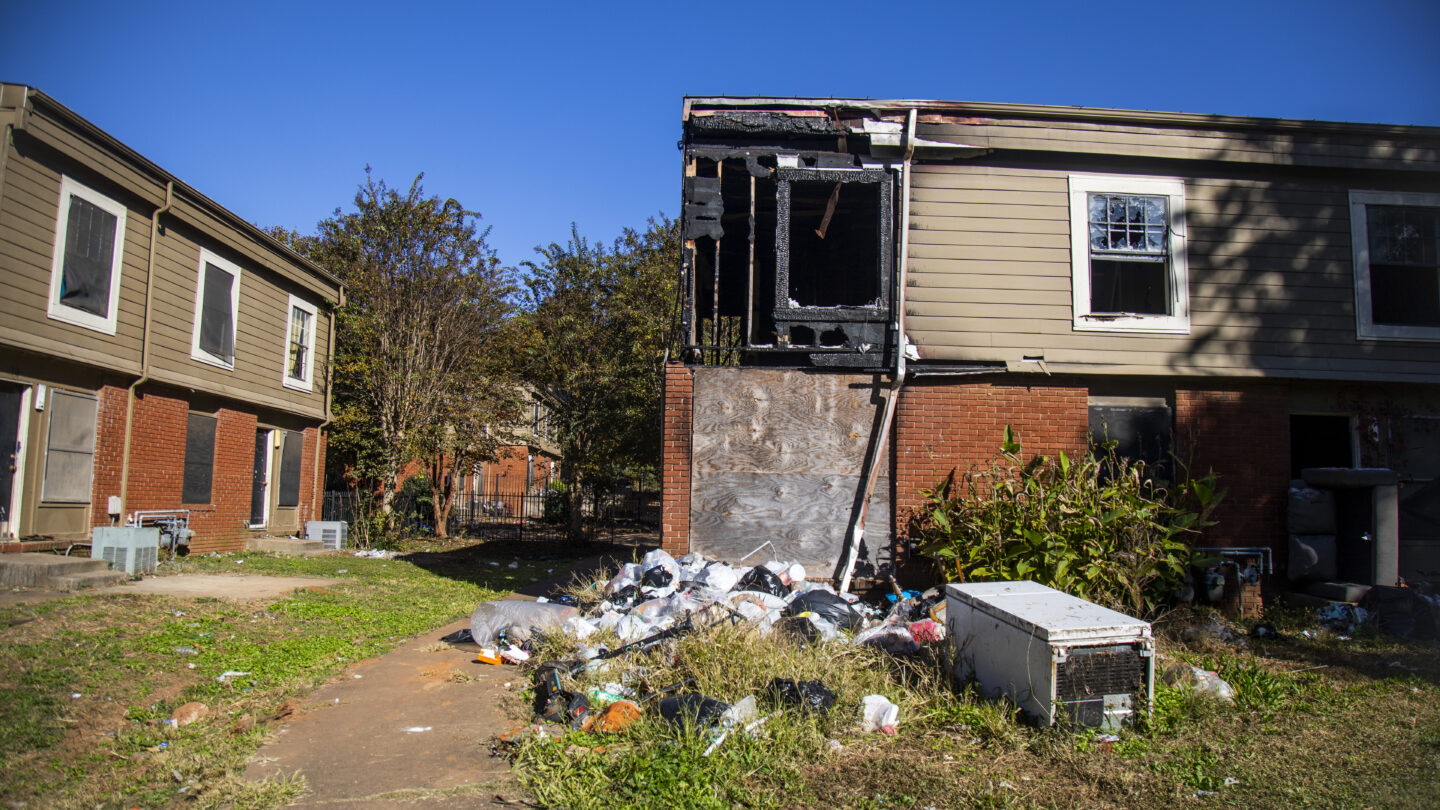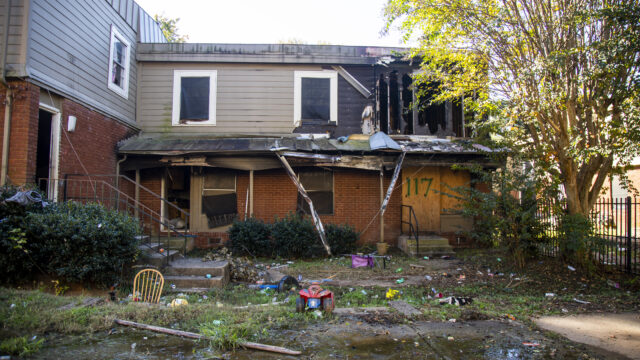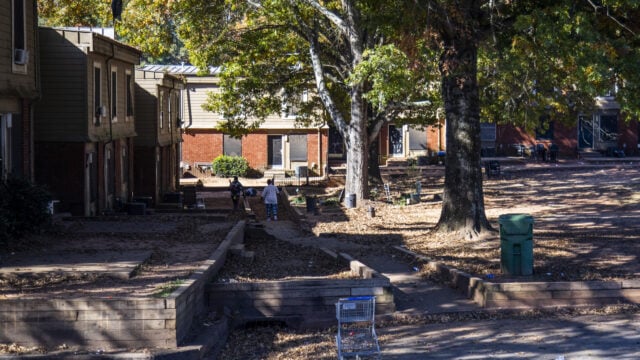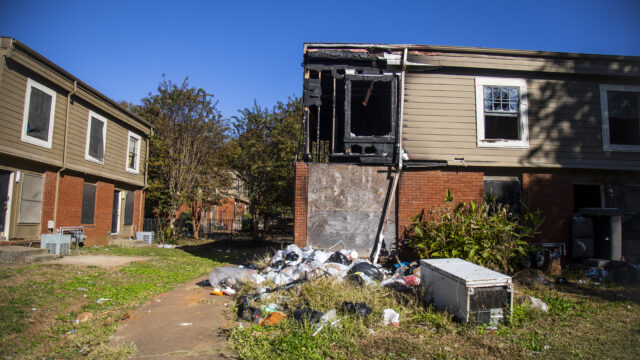The severely neglected Forest Cove apartments will likely remain in South Atlanta well after residents leave, according to records obtained by WABE.
The City of Atlanta previously pushed to condemn the complex late last year, leading a municipal judge to order the property demolished. Shortly after Atlanta Mayor Andre Dickens took office this year, he announced the city would work to rehouse all the families.
But to make that relocation effort possible, the city formed an agreement with the owner of the complex, an Ohio-based company called Millennia. And in that contract, which WABE received in an open records request, the city has agreed to drop its request for Forest Cove’s demolition.
All of the residents in the apartments are still moving. That is a condition of the agreement. What happens after that point, once the property is finally unoccupied, is consequential because of federal tax code complexities.
Millennia has sought to redevelop the 400 units of federally-subsidized housing at Forest Cove, using a form of financing known as low-income housing tax credits. In this program, investors can support affordable housing projects and get a break on their taxes.
In turn, the tax credits make it cheaper for developers to buy and renovate low-income housing. Since Millennia bought Forest Cove in April of last year, the company’s public policy director Arthur Krauer has said it could only afford Forest Cove’s renovation with the help of the credits.
In order for the company to qualify for these benefits, however, there still need to be buildings at the complex. Amanda Lee Gross, a tax law expert with U.S. Housing Consultants, said that’s how Congress designed the program back in the 1980s.
“The acquisition credits assist with the purchase of the property,” said Amanda Lee Gross with U.S. Housing Consultants. “And so if there’s no property to purchase, then there’s no acquisition credits.”
She said in the case where the apartments were demolished; the company would have to pursue different tax credits intended for building new housing. Those credits, she said, are typically more limited and much more competitive.
Millennia’s communications director Valerie Jerome said the company plans to apply for the acquisition and renovation credits in the next submission period. But there’s no clear timeline for when it could receive the financing to renovate the property.
The company was three years into an application for the tax credits when the city judge ordered Forest Cove condemned. After learning of the ruling, the Georgia Department of Community Affairs, which controls the benefits for the state, denied the application.
DCA said there’s no guarantee Millennia will be successful this time, either. In the next round of applications, which opens in October, the renovation credits still will be competitive.
As Millennia attempts the new application, the city’s contract requires Millennia to remove trash from the vacant property, surround it with fencing and add new lighting. If the company fails to secure the apartments, the city could take action.
“It’s the city’s hope that Millennia moves quickly on whatever plans they have,” said Atlanta City Council member Jason Winston, who represents the area. “We don’t want an empty, blighted apartment complex that’s in the community for a long time.”
Millennia has framed its redevelopment plan as preserving scarce affordable housing units in Atlanta. Forest Cove is part of a program called project-based Section 8, which limits residents’ rent to 30% of their income.
When units in the program are lost, the Department of Housing and Urban Development does not replace them. HUD has not created new project-based Section 8 properties since the 1980s.
The need for more housing is clear in the relocation effort. The city, Millennia and several partnering nonprofits have struggled to find adequate units for the 200 families there. Only a quarter of the households are expected to have moved by this week.
News of the consent agreement, which enabled the relocation process, first came in March in a joint announcement from Millennia and the mayor’s office. At that time, the city shared that it would cover the costs of residents’ move, with Millennia repaying the money at a later date.
Millennia’s appeal of the city’s condemnation order remains open in the superior court. In a filing last week, attorneys from both parties said they expected to present a consent order to a judge later this year.
For more background about Forest Cove, listen to WABE’s year-long investigation and podcast following residents’ push for change at the complex.
















